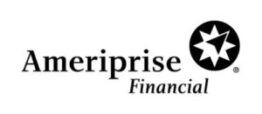

Cornelius Peterson of Boston Massachusetts an investment adviser representative and stockstockbroker formerly employed by Morgan Stanley has been barred by the Securities and Exchange Commission (SEC) from associating with any investment advisor or stockbrokerage firm according to an Order Instituting Administrative Proceedings According to Investment Advisers Act of 1940 Section 203(f) and Securities Exchange Act of 1934 Section 15(b) containing findings that Peterson defrauded investors. In the Matter of Cornelius Peterson Administrative Proceeding No. 3-18597 (July 17, 2018).
The SEC’s Order noted that Peterson pleaded guilty to bank fraud, conduct violative of 18 U.SC. §1344; one count of conspiracy, conduct violative of 18 U.S.C. §371; and one count of investment adviser fraud, conduct violative of 15 U.S.C. §§ 10b-17 and 80(b)-6. United States v. Cornelius Peterson Case No. 1:18-cr-10027 (Jan. 31, 2018). Evidently, Peterson pleaded guilty to counts of criminal information alleging that he and another person misappropriated two customers’ retirement savings where the customers’ funds were utilized by Peterson for his personal use rather than for the customers’ benefit.
According to the Complaint preceding the SEC’s Order, approximately $500,000.00 worth of customer funds had been stolen by Peterson through his fraudulent activities. Supposedly, in 2014, Peterson and another person concocted a fraudulent scheme which took an elderly investor for $450,000.00. Allegedly, $350,000.00 belonging to the customer had been misappropriated, with $100,000.00 being utilized by Peterson for his own accounts. SEC also alleged that between March of 2017 to May of 2017, multiple withdrawals had been effected from that customer’s account without the customer’s permission.
The Complaint further alleged that Peterson placed a customer’s assets at risk without the customer’s permission. Particularly, Peterson utilized the customer’s funds as collateral so that a private entity which Peterson owned could procure loan financing. SEC claimed that unbeknownst to the customers, Peterson had a personal stake in the investments purchased by them. SEC alleged that Peterson’s activities in this regard amounted to a breach of fiduciary duty.
Moreover, Peterson reportedly helped procure a loan for two customers which contained unfavorable terms. Those customers were also apparently charged fifty percent more on advisory fees than what Peterson promised. Consequently, SEC claimed that Peterson’s conduct was violative of, inter alia, Investment Advisers Act of 1940 Section 206; Securities Exchange Act of 1934 Section 10(b); and SEC Rule 10b-5.
Peterson has also been barred from associating with any Financial Industry Regulatory Authority (FINRA) member in any capacity founded on accusations that Peterson failed to provide information to FINRA during its inquiry into Peterson’s activities. Evidently, FINRA issued Peterson a Notice of Suspension letter dated September 1, 2017, and later issued Peterson a Suspension from Association letter dated September 25, 2017. During this time, Peterson was apparently placed on notice that his suspension would convert to a bar if he did not formally request for the suspension to be terminated by December 4, 2017. Peterson reportedly failed to respond in time.
Peterson’s registration with Morgan Stanley Wealth Management was terminated on June 26, 2017 based upon allegations that he misappropriated assets belonging to the firm’s customers.
Moreover, FINRA Public Disclosure additionally reveals that a customer initiated investment related arbitration claim regarding Peterson’s activities was settled for $20,000.00 in damages supported by accusations that while Peterson was associated with Morgan Stanley, Peterson misappropriated the customer’s assets. FINRA Arbitration No. 17-02954 (Mar. 12, 2019).








